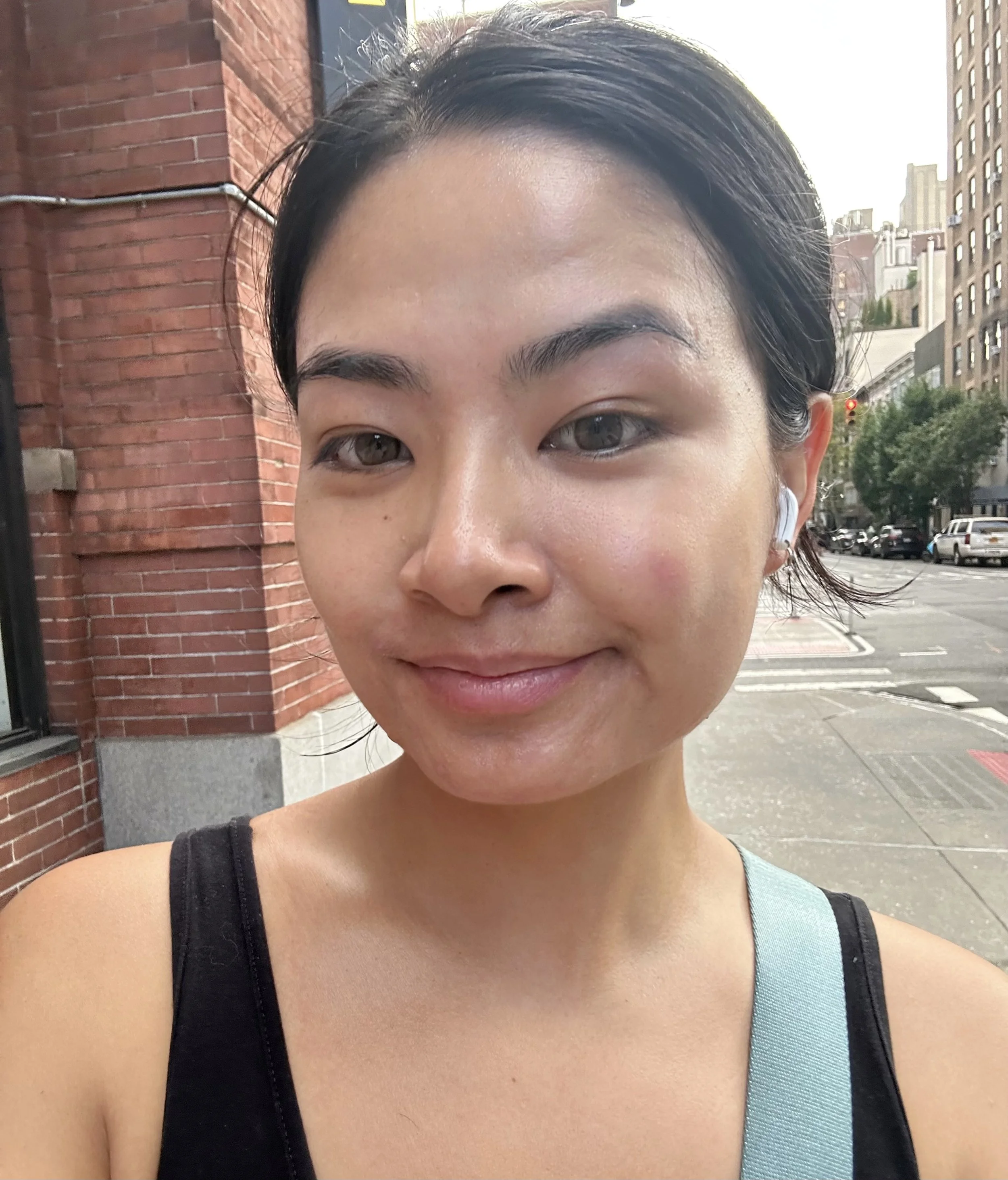
Virtual Psychotherapy for Depression and Low Energy in New York
Rediscovering Joy and Light in Life’s Dark Moments
Depression can make it feel like the weight of the world is holding you back, draining your energy and clouding your outlook. It’s not just sadness—it’s a real challenge that can affect every part of your life. At Phronetic Psychotherapy New York, we’re here to help you navigate through it with care and support.
Through our compassionate and personalized approach, we’ll work together to help you reconnect with yourself, rediscover joy, and regain a sense of control. Let’s take this step forward—together.

We accept most major commercial insurance plans, including Aetna, Wellfleet, Cigna, United Healthcare, Oxford, Oscar Health, Empire Blue Cross Blue Shield, and Carelon Behavioral Health, for residents of New York.

Now Open: Low-Fee Clinic!
Now Open: Low-Fee Clinic!
Do You Have Depression Without Realizing It?
The word "depression" is often associated with sadness, but have you ever wondered if it applies to you? Surprisingly, many people experiencing depression don’t even realize it. While millions of people struggle with depression, a significant number go undiagnosed or mistake their symptoms for everyday stress, fatigue, or personality traits.
Depression doesn’t always look like deep sadness or hopelessness—it can show up in subtle and unexpected ways. If you’ve been feeling "off" but can’t quite pinpoint why, it might be worth considering whether depression is playing a role.
Physical Symptoms
Depression isn’t just a mental health condition—it can take a serious toll on the body as well. You might experience:
Chronic fatigue or low energy (even after a full night’s sleep)
Frequent headaches, muscle aches, or stomach pain
Changes in appetite (eating too much or too little)
Unexplained weight gain or loss
Sleep disturbances (insomnia or oversleeping)
Because these symptoms can be caused by other conditions, many people don’t realize they could be linked to depression.
Loss of Interest in Things You Once Enjoyed
One of the most telling signs of depression is anhedonia, or the loss of pleasure in activities that used to bring joy. If you’ve noticed that hobbies, socializing, or even simple everyday tasks feel dull or meaningless, it could be more than just boredom—it might be depression.
Irritability or Increased Sensitivity
Many people associate depression with feeling sad or withdrawn, but it can also manifest as irritability, frustration, or mood swings. If you find yourself getting annoyed easily, snapping at loved ones, or feeling generally on edge, it could be a symptom of underlying depression.
You Keep Yourself Constantly Busy to Avoid Your Feelings
Not everyone with depression withdraws—some people overcompensate by staying constantly busy. If you:
Fill your schedule with endless tasks to avoid quiet moments
Feel uncomfortable with stillness or alone time
Always say “yes” to obligations but feel drained afterward
You might be using busyness as a way to distract yourself from feelings of emptiness, sadness, or anxiety.
Feeling "Numb" or Emotionally Disconnected
Not everyone with depression feels extreme sadness—some people feel emotionally flat or disconnected from the world around them. You might:
Struggle to feel excitement, love, or motivation
Find it hard to express or connect with your emotions
Feel like you’re just going through the motions of life
This emotional numbness can make it difficult to recognize depression, especially if you’re not experiencing the classic signs of sadness or despair.
Difficulty Concentrating or Making Decisions
Ever feel like your brain is in a fog? Depression can impact cognitive function, making it harder to:
Focus on tasks at work or school
Remember important details
Make decisions, even about small things
This can sometimes be mistaken for ADHD or simple forgetfulness, but it may actually be a sign of depression.
A Sense of Hopelessness or Feeling "Stuck"
Depression often creates a sense of hopelessness—feeling like things will never get better or that you’re trapped in a cycle of stress and exhaustion. This feeling can be subtle, showing up as:
Negative self-talk ("I’m not good enough" or "Nothing ever works out for me")
Believing things won’t improve no matter what you do
Feeling unmotivated to try new things or make changes
If these thoughts have become a regular part of your inner dialogue, it might be a sign that depression is affecting your perspective.
Do these experiences resonate with you?
Depression takes many forms—observe with your eyes, connect with your heart, and trust your intuition.
-
You stuff your calendar with 14-hour days so you don’t have any quiet moments—because those quiet moments are scary. When you’re alone, you feel empty and sad, and unwanted memories and thoughts creep in. You are exhausted. You would like this to change.
-
Roommates staying on the phone at 10 PM? No big deal for the past two years. But everything seemed to change three weeks ago. Something hit you so hard that, on the surface, nothing else had happened—but suddenly, whenever you hear his voice, you just want to bang on the wall and curse at him. This isn’t like you, and you’re confused.
-
Remember that feeling in your legs when you sit on the toilet for too long? When you stand up, they’ve fallen asleep—you can’t feel a thing for a minute or two. Then, all of a sudden, that sharp, needle-like pain creeps in.
That’s how you feel mentally every day. If it were just numbness, that might be okay. But it also hurts—so much.
-
Every day feels like a battle you're losing. Everything you do is slowing down, and nothing seems to go your way. You know that, logically, reality isn’t as miserable as it feels—but that doesn’t change how you feel. Sometimes, you even blame yourself, thinking that, as privileged as you are, you shouldn’t feel this way. But no matter what, you just can’t seem to make it stop.
-
You went to your doctor, and they cleared you, saying your bloodwork is perfect. But you still have chronic low energy—you’re so exhausted that you could sleep for 20 hours a day. You have stomach pain, and you can’t eat more than one banana—and even that feels like a huge battle. What’s going on!?
-
You might be a new mom or a professional in your first year in the field. You're struggling deeply, and nothing seems to be working anymore. You constantly search online for "When does it get easier?" but never find anything substantial. It feels like nothing—and no one—can help you.
What Can Happen if Depression Goes Untreated?
Depression is more than just feeling sad—it’s a serious mental health condition that affects millions of people worldwide. While occasional sadness is a natural part of life, persistent and untreated depression can lead to significant consequences for both mental and physical health. Without proper treatment, depression can worsen over time, making daily life increasingly difficult. Here’s a closer look at the potential risks of untreated depression, supported by evidence and research.
Increased Risk of Physical Health Problems
Depression doesn’t just affect the mind—it has profound effects on the body as well. When depression goes untreated, it can contribute to various physical health conditions, including:
1. Heart Disease and Other Cardiovascular Issues
Research has shown that individuals with untreated depression are at a higher risk of developing cardiovascular diseases, including heart attacks and strokes. Depression can increase inflammation in the body, elevate stress hormone levels, and lead to unhealthy behaviors such as poor diet, lack of exercise, and smoking—all of which raise the risk of heart disease.
(Source: American Heart Association, Harvard Medical School)
2. Chronic Pain and Weakened Immune System
Depression is often linked to physical symptoms such as headaches, muscle pain, and joint pain. A prolonged depressive state can alter the way the brain processes pain, making individuals more sensitive to physical discomfort. Additionally, chronic stress and depression can weaken the immune system, making a person more susceptible to infections and illnesses.
(Source: National Institute of Mental Health, Mayo Clinic)
3. Sleep Disturbances and Fatigue
Depression frequently disrupts sleep patterns, leading to insomnia, excessive sleeping, or poor-quality sleep. Over time, chronic sleep deprivation can contribute to increased stress, weakened cognitive function, and higher risks for other health conditions such as obesity and diabetes.
(Source: Sleep Foundation, American Psychological Association)
Worsening Mental Health and Emotional Well-Being
Untreated depression often spirals into more severe mental health challenges, impacting overall emotional well-being and cognitive function.
1. Increased Risk of Anxiety Disorders
Many individuals with depression also experience anxiety. Research suggests that 50% of people diagnosed with depression also suffer from an anxiety disorder. When left untreated, depression can heighten stress responses, making anxiety symptoms more pronounced.
(Source: Anxiety and Depression Association of America)
2. Cognitive Decline and Memory Problems
Chronic depression can impair cognitive functions such as memory, decision-making, and concentration. Studies have found a link between long-term depression and an increased risk of developing dementia and Alzheimer’s disease later in life.
(Source: Journal of Affective Disorders, National Institute on Aging)
3. Increased Risk of Substance Abuse
Many individuals struggling with depression turn to alcohol, drugs, or prescription medications as a way to self-medicate. This can lead to substance use disorders, which further complicate mental health and create additional physical health risks.
(Source: National Institute on Drug Abuse)
4. Suicidal Thoughts and Self-Harm
One of the most serious risks of untreated depression is an increased likelihood of suicidal thoughts or behaviors. Depression is a leading cause of suicide worldwide, and individuals with untreated depression are significantly more vulnerable to self-harm and suicide attempts. Seeking professional help can be life-saving.
(Source: World Health Organization, American Foundation for Suicide Prevention)

The best time to plant a tree was 20 years ago. The second best time is now.
Whether you’re seeking a therapist in NYC, guidance through life transitions, culturally informed therapy for Asians, or a way to boost your overall well-being by harnessing your strengths and potential, Phronetic Psychotherapy NY is ready to assist you.
We’ve made starting your journey with us easy, straightforward, and hassle-free.
Schedule a 15-minute Free Consultation
Easily Schedule Your Free 15-Minute Consultation, Here.
Attend Your Free 15-minute Initial Consultation
Start Sessions With Your Therapist
You’ll meet with the therapist of your choice through our secure, HIPAA-compliant telehealth platform to begin the transformative and empowering journey of self-discovery and meaningful change.
How Our Therapists at Phronetic Psychotherapy NY Can Help with Depression: An Evidence-Based Guide
Depression is one of the most common mental health conditions, affecting millions of people worldwide. It goes beyond occasional sadness and can interfere with daily life, relationships, and overall well-being. If you’re struggling with depression, therapy is a highly effective treatment that can provide long-term relief.
At Phronetic Psychotherapy NY, our experienced therapists use evidence-based approaches to help you understand, manage, and overcome depression. Here’s how therapy can support your healing journey.
Understanding the Root Causes of Depression
Depression can arise from a variety of factors, including:
Biological influences – Genetic predisposition and chemical imbalances in the brain can contribute to depression (American Psychiatric Association, 2021).
Life circumstances and stressors – Major life changes, chronic stress, or past trauma can increase the risk of developing depression.
Negative thought patterns – Persistent self-criticism, perfectionism, or feelings of hopelessness can reinforce depressive symptoms (National Institute of Mental Health, 2022).
At Phronetic Psychotherapy, we work with you to explore the underlying factors contributing to your depression. By addressing these root causes, therapy can help you develop self-awareness and create meaningful change.
Evidence-Based Approaches to Treat Depression
Our therapists use scientifically supported techniques to help you break free from depression. These include:
1. Cognitive-Behavioral Therapy (CBT): Changing Negative Thought Patterns
CBT is one of the most effective treatments for depression, with studies showing significant symptom reduction (Beck Institute, 2023). In CBT, we help you:
Identify negative thought patterns that contribute to depression.
Challenge and reframe these thoughts into more balanced, realistic perspectives.
Develop practical coping skills to manage stress and low mood.
Over time, CBT can rewire how you process emotions, reducing the intensity of depressive thoughts and promoting a more positive outlook.
2. Behavioral Activation: Rebuilding Motivation
Depression often leads to avoidance and withdrawal from enjoyable activities. Behavioral activation is a therapy technique that helps you:
Set small, achievable goals to increase engagement in daily life.
Reintroduce hobbies and social interactions at a comfortable pace.
Reduce feelings of isolation and restore a sense of purpose.
Research shows that regular participation in meaningful activities can significantly improve mood and overall well-being (APA, 2021).
3. Mindfulness & Acceptance-Based Approaches
Depression often involves rumination, or dwelling on negative thoughts. Mindfulness-based therapy teaches you to:
Stay present instead of getting stuck in the past or worrying about the future.
Accept emotions without judgment, reducing emotional distress.
Cultivate self-compassion rather than self-criticism.
Studies show that Mindfulness-Based Cognitive Therapy (MBCT) can reduce the likelihood of depression relapse by 43% (Kuyken et al., 2019).
4. Psychodynamic Therapy: Understanding Emotional Triggers
For some, depression is rooted in past experiences, unresolved conflicts, or deep-seated emotions. Psychodynamic therapy helps you:
Explore unconscious patterns influencing your mood.
Process past traumas or difficult experiences.
Gain deeper emotional insight to break free from depressive cycles.
By understanding these internal struggles, you can make conscious, empowered choices toward healing.
Addressing Physical Symptoms of Depression
Depression isn’t just emotional—it can also manifest in physical symptoms such as:
Chronic fatigue and low energy
Sleep disturbances (insomnia or excessive sleep)
Changes in appetite and weight
Aches, pains, or tension in the body
At Phronetic Psychotherapy, we integrate holistic strategies to manage these symptoms, including relaxation techniques, guided breathing, and lifestyle adjustments to support your mental and physical health.
The Power of Emotional Support in Therapy
Having a therapist who validates your experiences, listens without judgment, and provides compassionate guidance can be life-changing. Our therapists help you:
Feel heard and understood.
Build self-confidence and resilience.
Strengthen relationships and communication skills.
Therapy provides a safe space to express your struggles, helping you feel less alone on your journey to recovery.
Long-Term Benefits of Therapy for Depression
Therapy isn’t just about short-term symptom relief—it’s about helping you build lasting skills for a happier, more fulfilling life. Through therapy, you can:
Develop healthier coping mechanisms.
Improve emotional regulation and resilience.
Strengthen your sense of self-worth and purpose.
Prevent future depressive episodes with proactive strategies.
Studies show that therapy is as effective as medication for many individuals and can provide long-term benefits beyond symptom management (National Institute of Mental Health, 2022).

Our Therapists


We’re proud to offer not only high-quality therapy, but also a simple, stress-free process to get started with us.
We understand that taking the first step toward change can feel overwhelming, and that's okay. We're here to support you every step of the way.
While you focus on the important work of personal growth and transformation, let us take care of the rest—whether it’s scheduling your appointments or handling insurance details. You’re not alone in this journey, and we’re here to make the process as smooth and stress-free as possible.
Start Depression Therapy in NY Today,
with a Caring Therapist Who Understands You and Accepts Your Insurance
Immediately Accessible
You can start your first session with Phronetic Psychotherapy in as little as 24 hours—we're here when you need us!
Flexible Scheduling
You can attend therapy from the comfort of your home, at a time that works best for you, any day of the week, Monday through Sunday, 9 AM to 9 PM. Morning, afternoon, evening—your call.
Insurance Friendly
We accept most major commercial insurance plans, including Aetna, Wellfleet, Cigna, United Healthcare, Oxford, Oscar Health, Empire Blue Cross Blue Shield, and Carelon Behavioral Health, for residents of New York.

You are bright and full of potential, but perhaps you’re unsure about what you truly want from life. You may feel sad, lonely, angry at times, and often without love. You’re not alone. We understand your desire to thrive—in your career, school, or professional life—and we also understand the fear that things might never change. But change is possible, and we are here to help.
At Phronetic Psychotherapy New York NY, we’ll explore both your past and your present to help you better understand yourself and create meaningful change. Our approach is warm, open-minded, and collaborative, with growth rooted in both our work together and the courage you already hold within yourself.
Attachment
Anxiety & Stress
Depression
AAPI Mental Health
BIPOC Experiences
Professional Development
Grief & Loss
Personal Growth & Self-Esteem
Trauma
Grief & Loss
Relationship & Couples
LGBTQ+
School Issues
Eating & Body Image
Anger Management
Emotional Wellbeing
Bipolar Disorder
New Parenthood
Family & Communication
Immigration Experiences

Same-Day Psychotherapy Appointments Available. We are Ready When You Are.
Receive Therapy At Home
Immediately available, private virtual therapy for New Yorkers—grow and change from the comfort of your own home.
New To Therapy
We guide you through the entire process. Your intake coordinator will assist you in verifying your insurance, explaining your copay and deductible (or breaking down these intimidating terms if they’re unfamiliar), and helping you register. We’ll provide support every step of the way until you feel as comfortable and confident as our other established clients.
Connect With Your Therapist
We will ensure that you work with someone you feel comfortable with and connected to! All of our therapists offer a 15-minute consultation to get to know you, and we make sure it’s a good match before moving forward.

Book a free 15-minute phone consultation.
We’re excited to hear from you! To get started, our intake specialist will schedule a quick 15-minute phone consultation to verify your insurance and match you with the therapist who’s the best fit for your needs.
We’ll respond to all messages within 48 business hours.
If this is an emergency, please call 911 or reach out to a crisis counselor at 1-888-NYC-WELL. We’re here for you!
Or Contact Us Directly.
To verify your insurance coverage, please email us using the form below. For all other inquiries, we respond within 48 business hours.




































